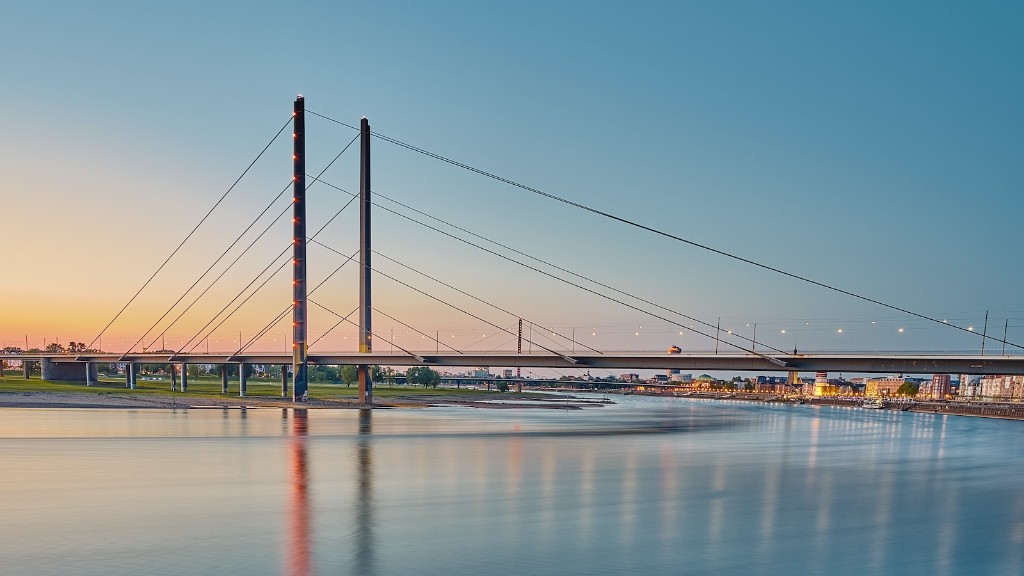Background details
Berlin was the epicenter of the EastGerman-West German Cold War partition; it was the only city shared by the two countries in contentious divide. The primary intention of the Berlin Wall from the East German standpoint was to protect its citizens by preventing them from fleeing to the West. However, in time, the Wall in fact became a loophole: instead of enforcing East German control over its citizens, it served as an opening, encouraging them to flee and hence escape the oppressive East German regime.
Data on escape
Data reveals that thousands of East Germans crossed the Berlin Wall to find freedomand security in West Germany. This period of escape is often referred to as the ‘Brain Drain’ – a phenomenon where EastScientists, doctors and engineers left behind the Iron Curtain, taking their knowledge and expertise with them. During the height of the Cold War in the 1980’s, for instance, thousands were reported to have escaped from East to West Germany in a single year. One study even reported that over 34,000 East German PhDs and postgraduates left over a period of 15 years, an alarming statistic that is indicative of a real sense of crisis between the two Germanys.
Perspectives of experts
Experts believe the East German government initially saw the Berlin Wall as providing security and safety, but quickly realized that it was ineffective in preventing citizens from attempting to escape. One East German professor, Dr. Reindl, commented: “The Wall was never meant to keep people in — its main purpose was to protect East Germany from the West”. Thus, the Wall’s main purpose shifted from paternalistic to hostile: it became an eminent reminder of ideological barriers between the Germanys, demarcated by a thick wall of concrete.
Impact of Berlin Wall on East/West relations
The fall of the Berlin Wall in 1989 marked a defining moment in German history – not only did it symbolize freedom and unity, it also allowed for much better East-West relations. Along with allowing thousands of refugees the chance to flee to the West, the easing of travel restrictions allowed citizens of both countries to visit and work in the other, leading to a more cooperative political and economic climate.
Analysis of Direct vs Indirect Impacts
The impact of the Berlin Wall can be seen both directly (in how it allowed East Germans to escape to the West) and indirectly (in how it allowed for better East-West relations). The direct impact of the Wall on East and West relations was evident immediately after its fall in 1989: the free movement of East Germans to the West worked to foster open dialogue between the two halves of Germany.
The indirect effects of the Wall, however, are even more profound. The lifting of travel restrictions eased East-West tension and allowed for an open exchange of ideas between both sides, leading to improved economic prospects and a better overall climate of trust and cooperation.
My Own Insights
Personally, I believe that the Berlin Wall has had a wider impact on the German culture and identity, beyond the obvious political and economic consequences. The fall of the Wall enabled a sense of unity and belonging that had been suppressed since the division of the country in 1945; it allowed Germans, East and West, to reunite as one people once more. This has gone hand in hand with a renewed sense of pride in the nation’s history: the memories of the Berlin Wall are reminders of how far Germany has come, both domestically and internationally.
Intercultural Effects
The intercultural effects of the Berlin Wall’s dismantling are perhaps some of the most lasting. The collapse of the Wall enabled citizens of both Germanys to interact and exchange beyond ideological boundaries; the gradual relaxation of travel restrictions gave civilians of both Germanys the chance to experience the other side of the divide, breaking down notions of ‘us’ and ‘them’. This cultural exchange has led to increased sympathy and understanding between East and West Germany, easing tensions and ultimately allowing for a united German identity.
Political Effects
In addition to the intercultural impacts of the Wall’s dismantling, there have been political changes caused by the Berlin Wall’s fall. One of the most significant political changes was Germany’s constitutional amendment, which was passed in the 1990’s to allow for East Germans to become citizens without being stripped of their former citizenship. This amendment also introduced the process of reunification, which allowed West Germany to legally absorb East Germany in 1991, effectively putting an end to the Cold War period.
Social Effects
The fall of the Berlin Wall also had an immense impact on the social landscape of Germany – most notably, the spread of the reunification advocate movement, which called for the restructuring of both East and West Germany. This led to changes in civic engagementin Germany, as East German citizens began to take a more active role in politics and actively oppose oppressive and restrictive policies. This has subsequently ushered in a new era of German politics, whereby the East and West Germanys come together to form a unified and democratically-minded society.
Economic Effects
Finally, the economic effects of the fall of the Berlin Wall have been widely felt throughout Germany. The process of reunification allowed the East German and West German economies to merge, paving the way for a major economic overhaul and the adoption of a standard national monetary system. This period of economic growth and expansion has fostered an atmosphere of entrepreneurialism, with Germany now widely regarded as a key player in the world economy.


